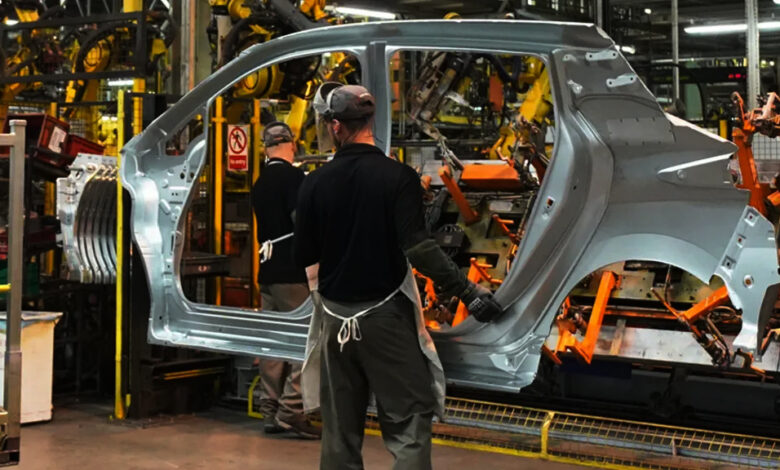UK Car Industry Faces Decline Without Crucial Support, Expert Warns
UK Car Industry Faces Decline Without Crucial Support, Expert Warns

UK Car Industry Faces Decline Without Crucial Support, Expert Warns
The UK’s car manufacturing sector could face a significant collapse unless the government takes substantial action to support the transition to electric vehicles, a leading industry figure has warned. Andy Palmer, a veteran in the automotive industry with leadership roles at Nissan and Aston Martin, stated that car manufacturers may leave the UK without a significant subsidy package, similar to the financial support being provided to businesses in the US.
Palmer, who is now the chairman of electric battery firm InoBat, explained that the UK’s car industry is at a critical juncture. He warned that without robust subsidies similar to those offered in the US and under consideration by the EU, it was likely that car companies currently based in the UK would relocate their operations abroad. He emphasized that the UK was managing the decline of its automotive sector, but that there was still a final opportunity to secure the future of car manufacturing and related jobs by investing in electric vehicle production.
The UK government has resisted following the example of the US and EU in providing such financial assistance. Chancellor Jeremy Hunt has publicly stated that the UK will not engage in a subsidy race with its allies, describing the UK’s approach as “better” and focusing on long-term security over subsidies.
However, Palmer’s comments highlight the severe risks facing the industry. He argued that unless the UK government introduces financial incentives similar to the US Inflation Reduction Act (IRA), the UK could see a reduction in car production that could leave over 800,000 people in the sector without jobs. Palmer added that the UK is in a “last chance” position to revive the industry and that it needed to act swiftly to avoid the industry’s collapse.
The warning follows a period of declining car production, with the UK car sector experiencing its lowest output in decades in December. Companies like Honda have already closed production plants in the UK, and others, like BMW, are still in the decision-making process regarding investments. Despite these challenges, the Society of Motor Manufacturers and Traders (SMMT) has emphasized that the UK has the potential to expand electric vehicle production but must act quickly to seize this opportunity.
While the government has pointed to investments like the £1 billion electric vehicle factory being built in Sunderland by Nissan and Envision, industry insiders like Palmer argue that the UK’s competitive environment will not be enough to secure future growth unless substantial subsidies are introduced.
The call for government action is particularly urgent as the world transitions away from traditional petrol and diesel vehicles. The UK has already announced a ban on the sale of new petrol and diesel cars by 2030 as part of efforts to reduce carbon emissions. However, the lack of adequate state support for the switch to electric vehicles has raised concerns that the UK may fall behind its global competitors.
The UK’s position in this global transition remains uncertain. With countries like the US and EU ramping up support for green technologies, including electric vehicles, the UK must decide how to position itself in this rapidly changing landscape.





